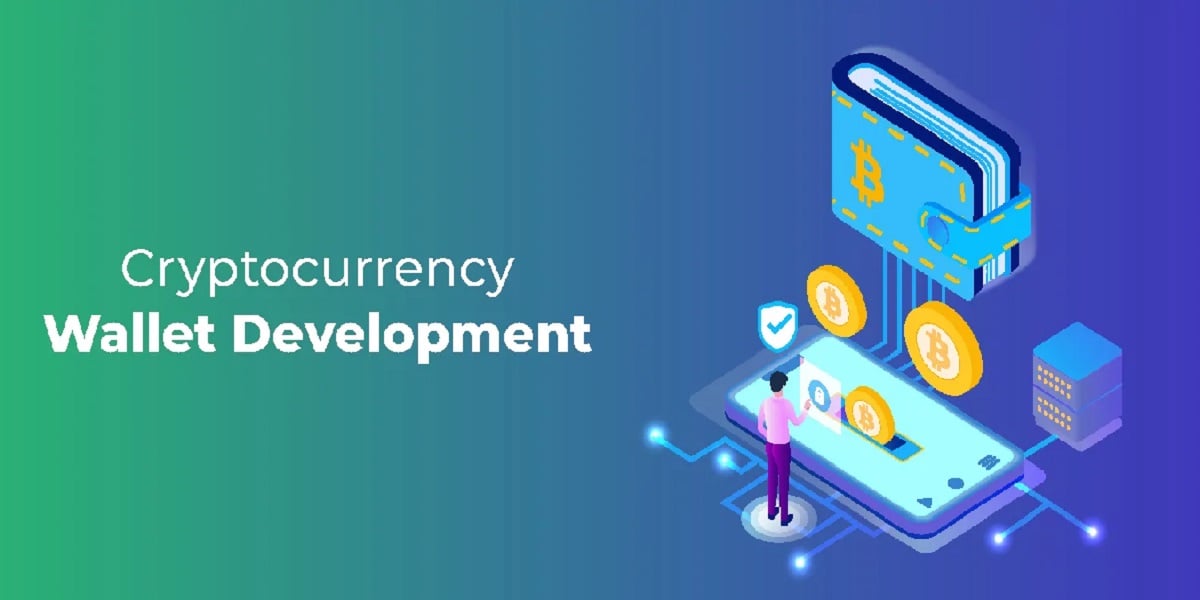
Mobile phones continue to play an essential role in bitcoin adoption throughout the globe. Some firms are already using cryptocurrencies as a payment channel or financial assets.
This article will look at some of the current developments in cryptocurrency applications. Significantly, across sectors in 2022 will shape the trajectory of growth for organizations.
Crypto Wallet Development
Because of the tremendous potential in the crypto field, several players are planning their crypto wallet development. Cryptocurrency wallet development has grown in popularity throughout the blockchain ecosystem.
Cryptocurrency wallets are intended to store, manage, and trade coins quickly. Assume you wish to create a crypto wallet to support your company. You may collect payments from crypto enthusiasts. Users may review prior transactions and keep track of their crypto wallets.
Latest Trends In Cryptocurrency Wallet Development
Crypto Ecosystem Institutional Adoption
Financial institutions and huge enterprises have long been skeptical of the bitcoin environment.
Several institutions are investing in this sector. One of them is the asset management business. The crypto asset class received 15 billion dollars in institutional assets under management. This is a big jump as compared to 2019 when the funds received were somewhere around 2 billion dollars (a little more than that).
We cannot fail to mention Grayscale Bitcoin Trust, the only route to gain bitcoin exposure for several institutions. The assets in this trust increased by 900% in 2020.
While this is currently a pittance compared to the broader asset management sector, further regulatory certainty may boost this figure.
Power Of DeFi Applications
The emergence of Decentralized Finance (DeFi) applications created a craze amongst the members of the crypto community.
The idea is that typical financial transactions can happen on the blockchain. However, these are made possible with the aid of smart contracts. You can take the help of a cryptocurrency wallet development company to get your smart contracts developed. Such transactions do not require the involvement of middlemen. This is unlike the usual payments where you actually need intermediaries. DeFi transactions often span from regular loans to derivatives production.
NFTs Decentralize Everything
The crypto realm witnessed a boom in its industry with the emergence of non-fungible tokens. They may symbolize either a digital or a real thing.
Bitcoin, which comes in the category of fungible tokens, may not always reflect a claim to an asset or actual item.
They are tradeable and may be separated into smaller parts. Domain names, actual or digital artwork, video game add-ons, and collectibles, on the other hand, are represented by NFTs.
Most NFTs, typically generated on the ETH blockchain, have embedded smart contracts. These specify the digital or physical object they represent.
Unlike fungible tokens, they are not generally divisible. However, this is changing. The total size of this market is difficult to quantify due to its fragmented structure.
However, by looking at specific NFT systems, we may gain a fundamental sense.
According to dAppRadar, the weekly trading volume for the five major Ethereum NFT markets increased to $2.7 million on January 19, 2021.
Marketplaces such as CryptoKitties and CryptoPunks promoted the overall concept by granting access to treasures. These were digitally produced kittens and pixelated artwork.
Government Regulation Is Unavoidable
In the crypto market, 2021 was the year of greater regulatory clarity. The ICO mania of 2017 heralded a new age of increased regulatory scrutiny.
And legal uncertainties about the nature of cryptocurrencies themselves have perplexed authorities. The Ripple instance nicely shows this tendency.
The SEC (Securities and Exchange Commission) filed a complaint against Ripple Labs in late 2020. It stated that the business provided nearly $1.3 billion in unregistered securities. This was when it sold a significant portion of its XRP cryptocurrency to the public.
This brings some aspects of the cryptocurrency industry into question. In the digital age, it's still unclear what constitutes "security" and "commodity."
The CFTC (Commodity Futures Trading Commission) has filed a civil enforcement action against BitMEX. It is a well-known bitcoin exchange.
According to the lawsuit, BitMEX runs an unlicensed trading platform and violates CFTC requirements like anti-money laundering measures.
Many in the financial industry expected the first cryptocurrency ETF to be introduced in 2021.
The SEC said in October 2020 that it is actively working on laws that would enable the trading and marketing of cryptocurrency ETFs.
Remarks by former SEC officials and cryptocurrency specialists have repeatedly dashed expectations for immediate regulatory improvements.
The dApps Market Grows
dApps are software applications that operate over a distributed peer-to-peer network.
A great amount of scope exists in the decentralized app industry. According to dAppRadar, overall dApp transaction volume will reach $271 billion in 2020, up from $21 billion in 2019. Many dApps that operate on the Ethereum blockchain have DeFi capabilities.
dAppRadar discovered that about 45 percent of new DeFi dApps ran on the Ethereum network.
The Ethereum ecosystem is seeing an increase in transaction volume.DeFi Ethereum apps handle 95 percent of dApp transaction traffic.
According to recent estimates, the Ethereum blockchain hosts over 2000 dApps.
Conclusion
Digital payments are becoming the trend and interestingly many people are loving this trend too. In the next years, there will be a slew of groundbreaking and cutting-edge digital wallet payment development and cryptocurrency development services.
